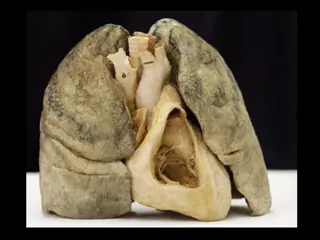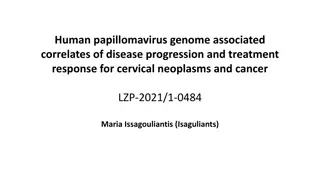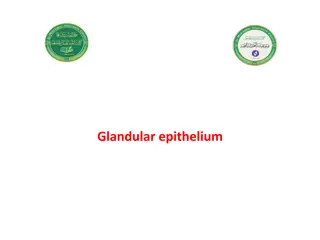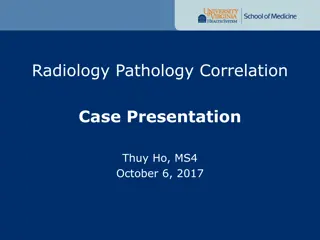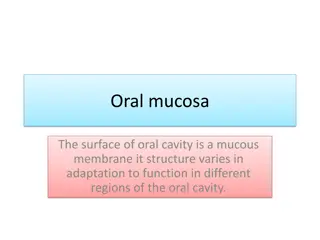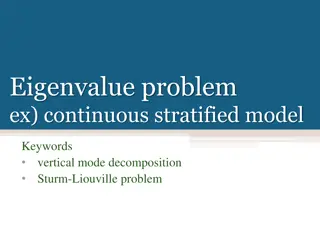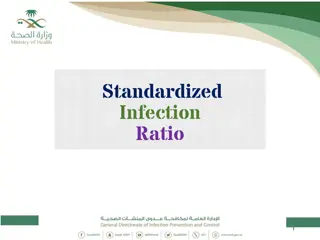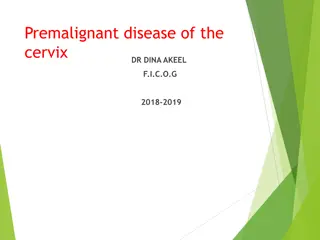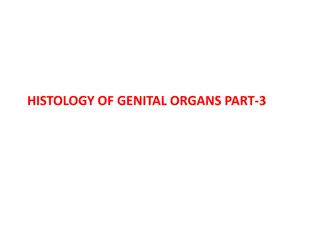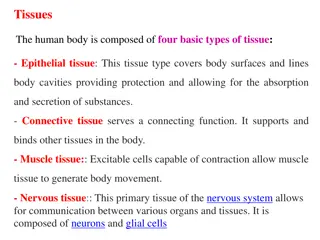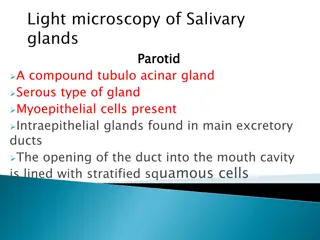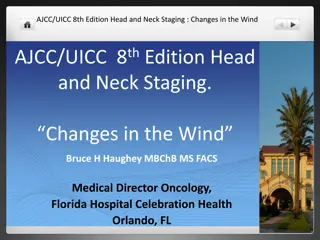Understanding Survey Data Analysis in SAS: Methods and Applications
Explore the nuances of survey data analysis in SAS, covering topics such as populations and samples, complex survey samples, stratified sampling, and more. Learn how to ensure representativeness in sampling and optimize precision of estimates in survey studies.
0 views • 31 slides
Tower Hamlets Annual Resident Survey 2023 Results Overview
The Tower Hamlets Annual Resident Survey 2023 provides insights into residents' feedback and opinions on various aspects. Conducted by MEL Research, the survey aims to capture a representative sample of residents in Tower Hamlets, highlighting statistical significance and methodology details. The su
1 views • 32 slides
Functions of the Respiratory System and Ventilation Mechanism
The respiratory system performs crucial functions such as ventilation to facilitate gas exchange, maintaining pH balance, and enabling vocal sounds. It consists of the upper and lower respiratory systems, including structures like the nose, trachea, bronchi, and alveoli. The system's epithelium, the
7 views • 43 slides
Double-blind, Randomized Trial of Interatrial Shunt in HF Patients
This study details the principal results of the RELIEVE-HF trial, investigating the safety and effectiveness of the V-Wave Ventura interatrial shunt device in patients with heart failure with reduced and preserved ejection fraction. Key inclusion and exclusion criteria are outlined, emphasizing the
0 views • 30 slides
Investigating Human Papillomavirus Genomes in Cervical Neoplasms
This project focuses on studying the Human Papillomavirus (HPV) genome's association with disease progression and treatment response in cervical neoplasms and cancer. The research aims to genotype high-risk HPVs in healthy and diseased cervix, identify prevalent genotypes, detect genotype drift, cha
1 views • 13 slides
Social Organization: Bands, Tribes, and Chiefdoms Explained
In social organization, cultures have evolved through bands, tribes, and chiefdoms. Bands are small, egalitarian groups practicing hunting and gathering. Tribes support larger populations with agrarian lifestyles and temporary land ownership. Chiefdoms, the most complex, are stratified societies wit
1 views • 11 slides
Understanding Glandular Specialized Epithelium and Glands
Glandular specialized epithelium forms a class of epithelial tissues with specific functions and structures, composed of cuboidal, columnar, and ciliated columnar epithelial cells. These tissues contain gland cells that are secretary in nature, with zymogen granules in the cytoplasm. Glands are spec
1 views • 35 slides
Understanding Glandular Epithelium and Secretory Cells
Glandular epithelium consists of epithelial cells specialized in producing and secreting various macromolecules, found in glands throughout the body. These secretory cells can synthesize proteins, lipids, and carbohydrates, with different types of glands such as exocrine and endocrine glands. The se
0 views • 13 slides
Development Stages of Inner Enamel Epithelium
The life span of cells in the inner enamel epithelium can be divided into six stages: Morphogenic, Organizing, Formative, Maturative, Protective, and Desmolytic. Differentiation of ameloblasts occurs in various regions of the tooth germ. Amelogenesis, the enamel formation, takes place during the for
0 views • 48 slides
Understanding Epithelial Tissue: Characteristics, Types, and Functions
Epithelial tissue is a crucial component of the body forming protective barriers, aiding in secretion, absorption, excretion, and more. Learn about its general characteristics, different types such as simple and stratified epithelium, glandular epithelium classification, and clinical applications li
0 views • 12 slides
Chronic Otitis Media: Classification, Causes, and Management
Chronic otitis media is a persistent inflammation of the middle ear mucosa and mastoid process for more than 3 months. It can be classified as tubotympanic or attico-antral, with the new classification including inactive and active mucosal and squamous types. The condition is influenced by factors l
0 views • 36 slides
Understanding Laryngeal Tumours: Types, Classification, and Pathology
Laryngeal tumours can be benign or malignant, with different types such as papilloma, chondroma, paraganglioma, and squamous cell carcinoma. These tumours present with various symptoms and may spread through direct, lymphatic, or hematogenous routes. Risk factors include tobacco smoking, alcohol con
0 views • 24 slides
Preparation of Squamous Epithelium Cells from Human Mucosa Mouth
Squamous cells from the mucosa of the human mouth play vital roles in protecting and maintaining oral health. This guide outlines the steps to prepare slides of these cells for microscopic examination using simple materials and methods. Caution is advised when handling methylene blue due to its toxi
0 views • 7 slides
Residual Inflammatory and Cholesterol Risks in Atherosclerosis Patients
In a secondary analysis of the CANTOS study, researchers evaluated the impact of residual inflammatory risk and residual cholesterol risk in a large cohort of atherosclerosis patients already receiving lipid-lowering therapy. Results showed the relative contributions of inflammation and cholesterol
1 views • 11 slides
Understanding Sampling Methods and Errors in Research
Sampling is crucial in research to draw conclusions about a population. Various methods like simple random sampling, stratified sampling, and systematic sampling help in selecting representative samples. Sampling error arises due to differences between sample and population values, while bias leads
0 views • 12 slides
Implementing STarT Back for Stratified Care in Low Back Pain Management
Helen Duffy and Kay Stevenson discuss the implementation of STarT Back, a screening tool designed to stratify low back pain patients for matched treatments based on modifiable risk factors. The tool is quick, validated, and helps clinicians identify high, medium, and low-risk patients for tailored p
0 views • 21 slides
Radiology-Pathology Correlation Case Presentation: Ms. DR - Lung Mass Evaluation
Ms. DR, a 62-year-old female with a history of tobacco use, presents with a right lung mass and possible metastatic disease. Imaging reveals a FDG-avid lung mass suspicious for primary malignancy. After obtaining informed consent, a CT-guided core biopsy is performed, showing cohesive, medium-sized
1 views • 16 slides
Understanding Oral Mucosa: Structure and Classification
The oral mucosa is a mucous membrane that adapts to different functions in various regions of the mouth. It is classified into masticatory, lining, and specialized mucosa, each with distinct characteristics. The structure of oral mucosa resembles skin and consists of epithelium and connective tissue
3 views • 31 slides
Sampling Methods and Techniques
Learn about the differences between stratified random sampling and cluster sampling techniques, their advantages, and how to implement them effectively in surveys and data collection. Understand the importance of selecting a sample that accurately represents the population being studied, and discove
0 views • 14 slides
Gravity Waves as a Mechanism of Coupling Oceanic and Atmospheric Acoustic Waveguides to Seismic Sources
Direct excitation of acoustic normal modes in horizontally stratified oceanic waveguides is negligible for shallow earthquakes due to velocity disparities. This study evaluates the contribution of scattering by hydrodynamic waves in generating abyssal T-waves. The research explores the role of scatt
1 views • 6 slides
Understanding Society: Wealth and Assets Survey Research
The Wealth and Assets Survey (WAS) conducted by Oliver Tatum and Angie Osborn at the Understanding Society Research Conference in 2013 focuses on longitudinal issues, experiment design, research findings, and future plans related to the survey. The WAS background includes collecting data on personal
3 views • 28 slides
Cancer Care Transformation Alliance Overview
The Cancer Transformation Funding Alliance aims to enhance cancer care services by implementing Holistic Needs Assessments, Health & Wellbeing events, and Risk Stratified Pathways for different cancer sites. The program also focuses on developing Cancer Support Workers, improving data collection sys
0 views • 5 slides
Governing Equations and Model Reduction in Continuous Stratified Models
Detailed analysis of the governing equations in a continuous stratified model with vertical mode decomposition and Sturm-Liouville problem. The density perturbation and pressure perturbation are examined to derive a reduced 3D system. The Boussinesq approximation and hydrostatic balance are applied,
0 views • 36 slides
Coupling and Mutual Transformation of Acoustic and Gravitational Modes in Kinematically Complex Flows
This study explores the coupling and mutual transformation of acoustic and gravitational modes in kinematically complex flows. The research delves into phenomena such as stratified fluid, internal gravity waves, and formalism related to background flow and compressible cases. The presentation plan c
0 views • 20 slides
Understanding Standardized Infection Ratio (SIR) in Healthcare
The Standardized Infection Ratio (SIR) is a crucial metric used to monitor Healthcare-Associated Infections (HAIs) at various levels. It allows for improved risk adjustment and comparison by providing a single summary number. Standardization methods like direct and indirect standardization help in a
0 views • 44 slides
NGM282 in NASH Phase 2: 3 mg vs 6 mg QD Randomised Trial
This Phase 2 clinical trial compares the efficacy of NGM282 (3 mg vs 6 mg) versus placebo in patients with NASH. The primary endpoint is a 5% reduction in liver fat content at 12 weeks. Randomisation was stratified by diabetes status, and stable Type 2 diabetes and lipid-lowering treatments were mai
0 views • 6 slides
Anatomy of the Tongue: A Detailed Exploration
Squamous epithelium, striated muscle, and various types of papillae make up the intricate structure of the tongue. Filliform, fungiform, circumvallate, and foliate papillae play different roles in sensory perception and taste. Taste buds, Van Ebner's glands, and gustatory furrows add complexity to t
0 views • 40 slides
Understanding Premalignant Disease of the Cervix
Premalignant disease of the cervix is a significant health concern, particularly in developing countries. Carcinoma of the cervix ranks as the second most common cancer among women globally, with preventive measures vital for early detection and treatment. This article discusses the pathophysiology
0 views • 73 slides
Female Ovary Histology and Function Overview
The female reproductive organ, the ovary, plays crucial roles in oocyte development, hormone production, and ovulation. Structurally, ovaries have a cortex and medulla, with follicles containing oocytes and surrounding cells. The primary follicle marks the onset of follicular maturation, leading to
0 views • 12 slides
Understanding Sampling Methods in Business Analytics
Sampling plays a crucial role in estimating proportions and making informed decisions in business analytics. From polling to estimating proportions, this class explores sampling techniques, sample size determination, and potential biases. Learn about choosing a sample size, stratified and cluster sa
2 views • 23 slides
Understanding Epithelial Tissues: Structure and Function
Epithelial tissues play crucial roles in the human body, covering surfaces, lining cavities, and forming glands. They are highly cellular and rest on a basement membrane, separating them from connective tissues. Epithelial tissues serve functions such as protection, absorption, secretion, and contra
0 views • 15 slides
Understanding Experimental Design and Bias in Statistics
Explore key concepts in statistics such as observational studies, experiments, bias, and sampling methods. Delve into the difference between observational studies and experiments, understand the impact of bias in research, and learn about sampling techniques like simple random sampling and stratifie
0 views • 22 slides
Histology of the Tongue: Structure and Function Overview
The tongue is covered by stratified squamous epithelium with various types of papillae on its dorsal surface, each serving specific functions such as taste perception and mechanical tasks. The filiform, fungiform, vallate, foliate, and circumvallate papillae are distinct in their appearance and dist
0 views • 10 slides
Analysis of 2019 Cal MediConnect Rapid Cycle Polling Project Findings
The findings from the Cal MediConnect Rapid Cycle Polling Project conducted in 2019 focused on comparing the experiences of Cal MediConnect (CMC) enrollees by county, race, language, and disability across different characteristics such as language and need for Long-Term Services and Supports (LTSS).
0 views • 104 slides
Influence of Income on Residential Yard Biodiversity in Baltimore
Residential yards in Baltimore, regardless of life stage, exhibit variations in biodiversity based on residents' income levels rather than other factors. The study explores how time and money influence plant diversity in yards, hypothesizing that residents with less money but more time will have hig
0 views • 25 slides
Observational Study on Red Light Cameras' Impact on Driver Behavior
The study focuses on determining if the installation of red light cameras at a busy intersection reduces the number of drivers running red lights. It discusses the data collection plan, including the focus on the number of cars running red lights, the sampling methods, such as simple random and stra
0 views • 17 slides
Comprehensive Overview of Craniopharyngioma: History, Pathology, and Treatment Considerations
Craniopharyngioma is a complex intracranial tumor with a rich historical background dating back to the early 20th century. Initially described by McLean, Frazier, Alpes, and famously studied by Cushing, this tumor continues to be a subject of debate and controversy in terms of treatment approaches a
0 views • 76 slides
Overview of Salivary Glands Structure
Salivary glands play a crucial role in the production and secretion of saliva, aiding in digestion and oral health. The parotid gland is a compound tubuloacinar gland with serous characteristics, while the sublingual gland is a seromucous type. Minor salivary glands, found in carnivores, vary in com
0 views • 16 slides
Understanding BlinkDB: A Framework for Fast and Approximate Query Processing
BlinkDB is a framework built on Hive and Spark that creates and maintains offline samples for fast, approximate query processing. It provides error bars for queries executed on the same data and ensures correctness. The paper introduces innovations like sample creation techniques, error latency prof
0 views • 8 slides
AJCC/UICC 8th Edition Head and Neck Staging Changes
This content delves into the changes in staging guidelines for head and neck malignancies as per the 8th edition of the AJCC/UICC criteria. It explores the modifications in staging for oropharynx cancer, neck metastatic disease, oral cavity depth of invasion, and cutaneous malignancies. The presenta
0 views • 32 slides


